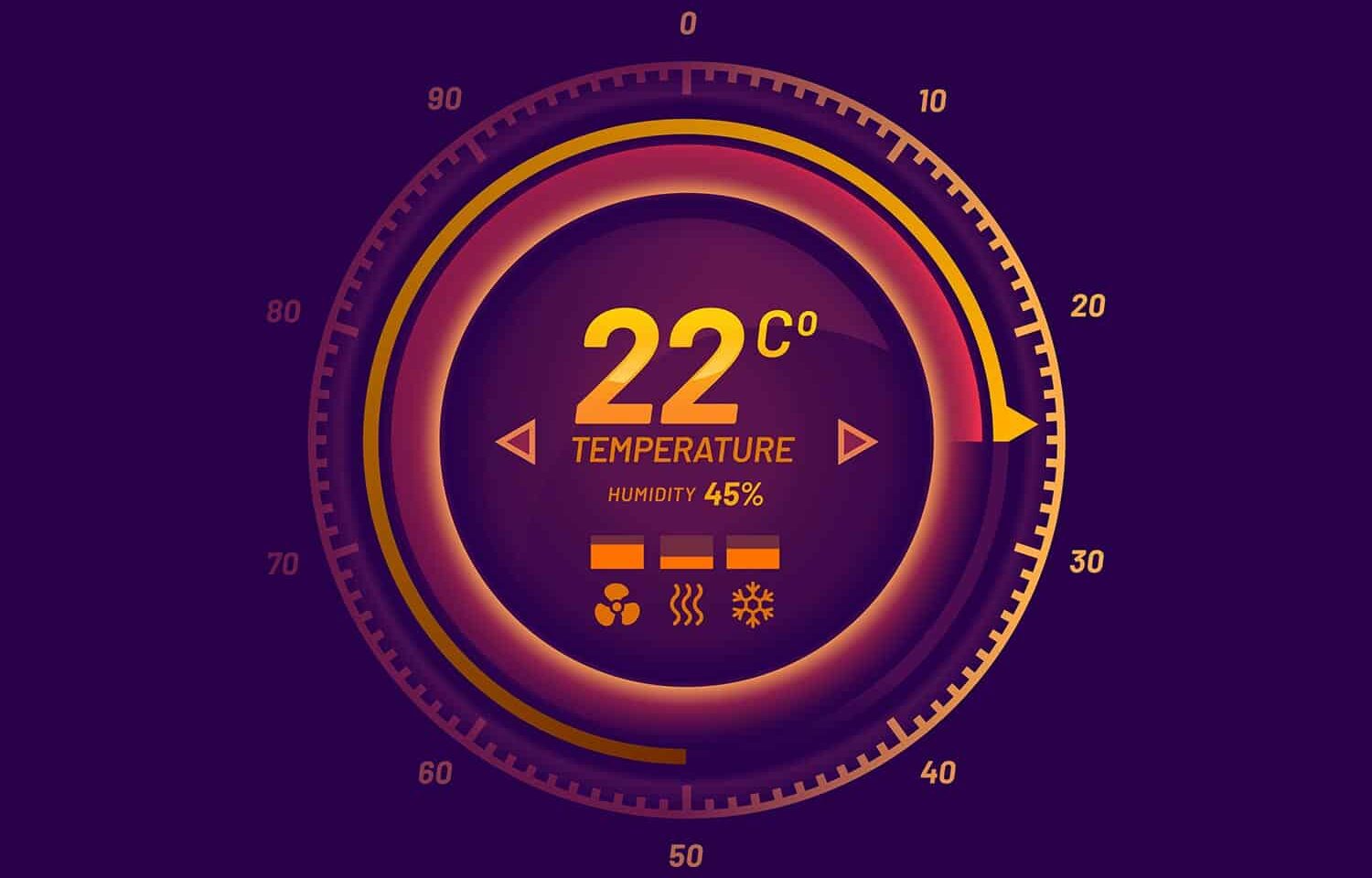
Jump to a section:
Running an HVAC installation and repair business can feel a bit like being the hometown hero—until a flood of competitors begins attracting the local customers who should be calling you first. That’s where Local SEO steps in. Local SEO, or local search engine optimization, is the process of improving your online visibility so that people in your geographic area find you when they search for services such as “HVAC repair,” “AC installation,” or “emergency furnace service.”
In this playbook, we’ll go deep into the essentials of Local SEO, specifically for HVAC businesses. You’ll learn exactly how to optimize your website, boost your online reputation, and maintain a consistent local presence so that new clients choose your services over the competition.
Section 1: Understanding the Foundations of Local SEO for HVAC
Local SEO isn’t just about sprinkling your city name throughout your website and hoping for the best. It’s a structured approach to on-page optimization, business listings, and reputation management that helps search engines recognize your credibility and your relevance to local searches.
Why Local SEO Matters Specifically for HVAC
- Highly Localized Demand
HVAC is location-based by nature. Customers usually search for services near them because they need quick, on-site solutions. If your business doesn’t appear in the top local search results, potential clients will likely choose a competitor. - Mobile Searches Are Growing
As of 2022, over 60% of Google searches originate from mobile devices. Many of these searches include keywords like “near me” or specific city names. This means your business listing, website, and reviews must be mobile-friendly and optimized for local queries. - Competition Is Rising
New HVAC companies often emerge with compelling offers or 24/7 emergency service. A robust Local SEO strategy is the modern way to differentiate yourself, especially if your competitors haven’t fully optimized their online presence.
The Unique Challenges of HVAC and Local SEO
- Seasonal Fluctuations
HVAC demand often peaks in extreme weather conditions—scorching summers or freezing winters. If you’re not optimized before those peak seasons, you miss out on a surge of potential leads. You need to plan your SEO strategy months in advance. - Wide Range of Services
Unlike some industries with a singular offering, HVAC services encompass installation, repair, maintenance, duct cleaning, indoor air quality assessments, and more. You must optimize for each service category, ensuring each offering is discoverable by the right audience. - Geographically Dispersed Customers
HVAC providers typically serve multiple towns or neighborhoods. Balancing your marketing approach across different locations can be tricky. Creating specific location pages and ensuring accurate contact information for each service area is critical.
Section 2: On-Page and Technical SEO: Building a Rock-Solid Website Foundation
Your website is the central hub for your online presence, serving as the digital version of your storefront. For HVAC businesses, the site must be easy to navigate, optimized for relevant keywords, and technically sound so that search engines can crawl and index it effectively.
Website Structure and Page Hierarchy
- Create Separate Pages for Each Service
Many HVAC sites lump all offerings under a single “Services” page. This approach limits your potential to rank well for specific search phrases like “AC installation,” “furnace repair,” “HVAC maintenance,” etc. Instead, dedicate individual pages to each major service.- Example structure:
- /ac-installation
- /furnace-repair
- /duct-cleaning
- Example structure:
- Develop Location-Specific Pages
If you serve multiple neighborhoods or towns, create tailored location pages. For instance, if you have one office in Austin and another in Round Rock, craft pages such as /hvac-services-austin and /hvac-services-round-rock. Populate each page with unique content about the location’s climate concerns or local references to prove its authenticity. - Use Logical Navigation Menus
Make it easy for visitors—and search engines—to find the information they need. Place “Services,” “About Us,” “Contact,” and “Testimonials” in your top-level navigation. Submenus can drop down for specialized services or local pages, reducing clutter while keeping a user-friendly design.
Keyword Optimization for HVAC Services
- Focus on Localized Terms
Phrases like “HVAC repair in [City],” “air conditioning installation [Neighborhood],” or “emergency heating services near me” capture targeted traffic. Use these local keywords in page titles, H1 tags, meta descriptions, and within the body text. - Long-Tail Keywords
Long-tail keywords generally have lower search volume but can lead to higher conversion because they reflect very specific user needs. For example, “24-hour furnace repair in downtown Houston” may have fewer searches, but those users are more likely to need immediate help. - Avoid Keyword Stuffing
Search engines now penalize websites that overuse keywords in an unnatural way. Maintain a conversational tone. Use synonyms and related phrases like “heating and cooling services,” “air conditioning solutions,” or “furnace replacement” to keep content sounding human.
Mobile-Friendliness and Technical Performance
- Mobile-First Design
Given that most local searches happen on smartphones, ensure your site resizes intelligently for mobile screens. Clickable phone numbers, easy-to-read text, and responsive forms are essential. - Site Speed and User Experience
According to Google, 53% of mobile users abandon a site that takes over three seconds to load. Compress images, use a fast web host, and minimize JavaScript and CSS bloat to ensure a swift loading experience. - Schema Markup and Structured Data
Add relevant schema markup (like LocalBusiness or Service schema) to help search engines better understand your business details. This can enhance your visibility in SERPs (Search Engine Results Pages) with rich snippets such as star ratings or service details.
Section 3: Boosting Local Authority: Directories, Citations, and Reviews
Once your website is properly optimized, the next step is to ensure search engines and local users see your business as a trustworthy, established presence. That means building citations, claiming directory listings, and earning authentic customer reviews.
Google Business Profile
- Claim and Verify Your Listing
Formerly Google My Business, Google Business Profile is crucial. Add your business name, address, phone number, website link, and hours of operation accurately. The consistency of this information across all platforms is vital for local SEO. - Populate Every Field
If Google gives you a field to fill out—whether it’s your service areas, products, photos, or Q&A section—use it. Complete profiles rank higher and look more appealing to potential customers. - Encourage Reviews
A large number of positive reviews signals that your business is both credible and popular. Politely ask satisfied customers to post reviews, and make it easy for them by sending a direct link to your Google Business Profile. Respond to all reviews—both positive and negative—to show you care about customer feedback.
Other Key Local Directories
- Major Platforms
Yelp, Angie’s List (Angi), and HomeAdvisor are high-authority sites for home services. Keep your profile details consistent with your Google listing. - Industry-Specific Directories
Explore specialized platforms like HVAC.com or the ACCA (Air Conditioning Contractors of America) membership directory. Listings on these sites can drive targeted traffic and build your authority. - Local Chambers of Commerce
Many local chambers have online directories where you can list your HVAC services. This not only boosts your SEO with a backlink but also connects you with local businesses that may need your services or refer you to their own clients.
Reputation Management
- Proactive Review Strategy
Make leaving reviews a seamless process. You could place a feedback link in your email signature or include a gentle prompt in your after-service follow-up messages. Some HVAC businesses use text-message reminders that link directly to their review profiles. - Handling Negative Feedback
No matter how dedicated you are, sometimes a customer will have a less-than-stellar experience. Address complaints promptly and professionally. Offer a solution or invite the reviewer to speak privately. Future customers see how you handle issues, which can restore faith in your brand. - Showcase Testimonials on Your Site
Social proof is powerful. Grab snippets of positive Google or Yelp reviews and place them on your home page or dedicated testimonial page. Authentic endorsements build trust for new visitors who might be on the fence.
Section 4: Content Marketing and Community Engagement for Long-Term Growth
Beyond basic on-page tactics and review strategies, content marketing and community engagement are what set top HVAC businesses apart. By becoming a local authority, you not only drive more traffic but also cultivate lasting relationships within your service area.
Localized Content Creation
- Hyper-Specific Blog Posts
Think seasonal tips and location-based blog topics. For example, “How to Prepare Your Air Conditioner for Phoenix’s Summer Heat” or “Winter Furnace Maintenance Checklist for Rochester Homeowners.” These posts are relevant, helpful, and naturally optimized for local keywords. - Video Demonstrations and Tutorials
You don’t need a Hollywood setup. Simple videos demonstrating common repairs or explaining energy-saving tips can garner a lot of interest. Post them on YouTube, embed them in your site, and share on social media. If you optimize video titles and descriptions with local terms, you can rank in YouTube’s local search as well. - Case Studies and Success Stories
If you’ve done a major installation or tackled a difficult repair for a local building, create a case study. Highlight the problem, solution, and results—especially if you saved the client money or improved efficiency. This real-world evidence can also serve as a powerful selling tool on your website.
Building Community and Local Partnerships
- Sponsor Local Events
From sponsoring a youth sports team to participating in community fairs, local sponsorships can increase brand visibility. Not only do you get offline publicity, but local news sites or organizers often mention sponsors online, which can provide high-quality local backlinks. - Network with Related Businesses
Form alliances with real estate agencies, property management companies, or home improvement contractors who can refer clients your way. Consider creating a referral program that incentivizes them to recommend your services. - Community Workshops
Offer free workshops on topics like “Energy Efficiency 101” or “Do-It-Yourself HVAC Troubleshooting.” You’d be surprised how many homeowners appreciate learning these basics—and they’ll remember your helpfulness when it’s time for more complex work.
Measuring Success and Ongoing Optimization
- Key Metrics to Monitor
Use tools like Google Analytics and Google Search Console to track organic visits, page rankings, and keyword performance. Keep a close eye on phone calls, form submissions, and requests for quotes. - Seasonal Strategy Adjustments
Because HVAC demand is highly seasonal, plan content and promotions ahead of peak times. In spring, ramp up content about AC maintenance; in autumn, shift to heating tips. Review results each season and adjust accordingly. - Continuous Improvement
SEO is never a one-off task. It’s an ongoing process. Regularly audit your citations to ensure business info is up to date, refresh old blog posts with new data, and keep an eye on competitor strategies to stay one step ahead.
Conclusion: Dominating Your Local Market
Leveraging Local SEO for your HVAC installation and repair business is about much more than chasing Google rankings—it’s about building genuine trust in your community. By combining technical website optimization, accurate directory listings, positive reviews, and community-driven content, you showcase your expertise in a way that resonates with local homeowners and property managers.
Remember that each piece of this puzzle plays a role in your overall visibility. A well-structured website helps prospects find exactly what they need. Verified listings across Google and other platforms ensure your business is taken seriously. Authentic reviews signal that you provide high-quality, reliable service. And engaging local content cements you as the go-to authority for HVAC needs in your region.
The ultimate reward? Fewer empty appointment slots, a busier phone line, and a growing reputation that leads to word-of-mouth referrals and repeat customers. By mastering Local SEO, you’ll take a monumental step toward making your HVAC business the most trusted name in town—no matter how big the competition might be.


